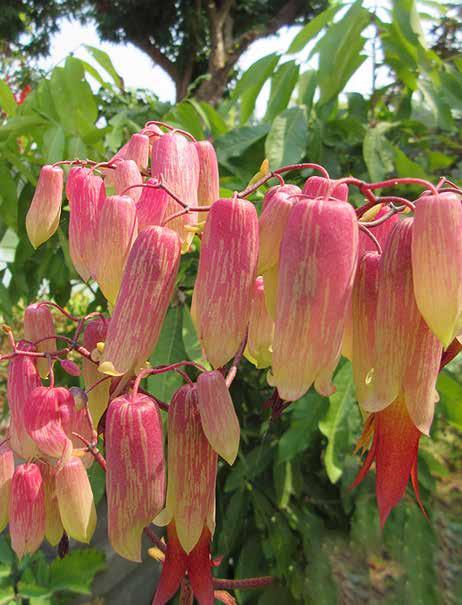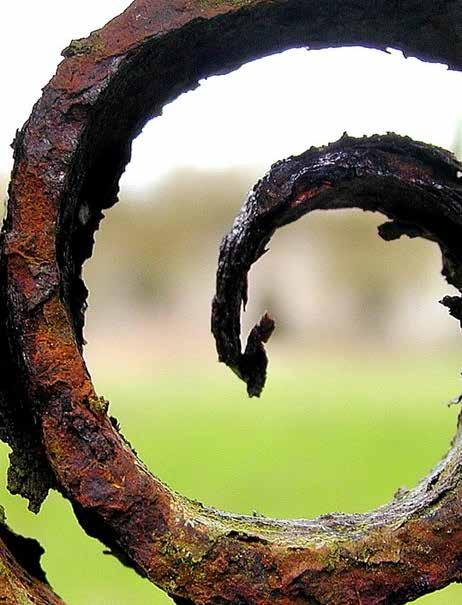The enigmatic woman
Approaching or photographing is prohibited
You write about her with caution
She is the closest
To the emotions of the Eastern man
The enigmatic woman
A creature not accessible to those close
Easier than the complexities of eloquence
And the construction of poets
And the dreams of young musicians
This woman
Becomes a god of love that Everyone denies
© liveencounters.net ARAB WOMEN POETS & WRITERS April 2024 Celebrating 14th Anniversary
U S U A L L Y
As a man
You do not know how to love a woman who loves details
She goes with you to the supermarket
She picks up things she does not often buy and does not like But you might miss them
The woman who loves details is very self-critical
If the jar of hazelnut coffee runs out
If she failed to make the unknown smoked salt for us
She does not like alcohol during intimacy
The woman who loved you with such attention to detail
Does not expect your famous word “grateful” - that’s the worst thing to say -
Because she is more appreciative than you for her ability to do seemingly trivial Things
She is thankful for the sigh over a pot of green soup mixed with a kiss that thaws
Her frozen heart
Grateful for the sound of your mother bridging the gap between you both
As a mysterious man
You cut the vein without ceremony or praise And that goes against the rules of sacrifice.
2024 April POETRY & WRITING © liveencounters.net
A M I N A A B D A L L A H A S S A N
© Amina Abdalla Hassan
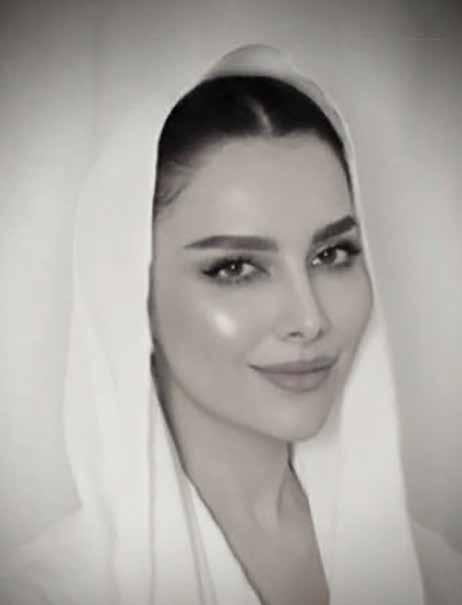
© liveencounters.net ARAB WOMEN POETS & WRITERS April 2024 Celebrating 14th Anniversary
Al-Ammari A T O N E A . M . O R D E R S
Asia
Asia Al-Ammari is a prominent Saudi poet and academic from Saudi Arabia. She has published more than four poetry collections, which are subject to critical study.
At one a.m. orders
Bring a cup
I will pour us
A sweet meeting.
Bring your hand
We will light
A candle
For an apparent joy.
Bring your mouth
We will move a song
In the air.
Bring your pillow
I will hide it under
A dream coming true.
Bring your heart
It will stop its light beat
And will leap to my windows.
Bring your perfume
It will blend with mine
Now.
2024 April POETRY & WRITING © liveencounters.net A S I A A L - A M M A R I © Asia Al-Ammari
About two dancers who did not turn towards us
We sat silent
Not knowing what to say About our steps
That we do not know.
There are two dancers
Approaching And receding Like waves
In front of us, we who Are afraid of drowning.
Do they feel two Belonging to the seats Not the music ?!
Will they be sad if they knew
That there are those who watched them for a long time And left Before they turned Towards them?
© liveencounters.net ARAB WOMEN POETS & WRITERS April 2024 Celebrating 14th Anniversary
A T O N E A . M . O R D E R S
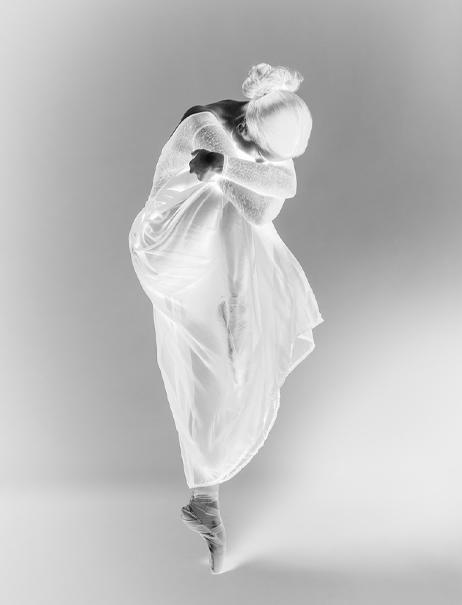
Photograph courtesy https://pixabay.com/photos/danse-studio-classique-tutu-5381508/
2024 April POETRY & WRITING © liveencounters.net
A S I A A L - A M M A R I © Asia Al-Ammari

© liveencounters.net ARAB WOMEN POETS & WRITERS April 2024 Celebrating 14th Anniversary
H A M Z A
Fadwa Tuqan
Fadwa Tuqan (1917-2003)
Hamza
Hamza was one from my town, like the others
Who eats his bread nicely
With the hand of toil like my simple, good people
***
He told me when we met one day
As I stumble in the maze of defeat:
Be patient, do not weaken, my cousin
This land that the fire of crime reaps
Which, today, shrinks in sadness and silence
With its broken heart, will remain
Alive and never die.
***
This land is a woman
In the grooves and in the wombs -
The secret to fertility is one
The power of the secret that grows palm trees
And ears
Also, grows the fighting people.
***
Days passed when I did not meet
With my cousin
But I knew
That the belly of the earth was heaving in pain
With labor and a new birth.
*** continued overleaf...
2024 April POETRY & WRITING © liveencounters.net F A D W A T U Q A N © Fadwa Tuqan
is a prominent Palestinian poet known for her representations of resistance to occupation in contemporary Arab poetry. She has sometimes been referred to as the “Poet of Palestine.” Tuqan eventually published eight poetry collections, which were translated into many languages.
Hamza — sixty-five — weighs
Heavy like a rock on his own back
When the town governor gave his order: (Blow up the house and tighten up His son in the torture chamber!)
The governor of the town ordered
Then he rose
He ,later. explained:
It was necessary for law and order
That is, for love and peace!
The soldiers surrounded the perimeter of the house -
The serpent’s coil came full circle
The bang at the door was but an order — ‘evacuate, damn it!’
And generous as they were with time, they could say: ‘In an hour, yes!’
***
Hamza opened the windows
Under the eyes of the soldiers, to the sun and say, “Allahu Akbar.”
Then he called:
(Oh Palestine, rest assured
I, the house, and my children are the offerings of your salvation
For you, we live and die)
Then a shake penetrates the veins of the town
When the echo repeated Hamza’s scream
Then, humility and silence enveloped the house.
© liveencounters.net ARAB WOMEN POETS & WRITERS April 2024 Celebrating 14th Anniversary
***
*** H A M Z A
An hour later, the house collapsed
Burying dreams and memories of a lifetime
Of labor, tears, and some happy moments. ***
Yesterday I saw my cousin on the road
He steps on the path with determination and certainty
Hamza still had his brow raised with pride
It is enough for me to stay in its embrace
It is enough for me to die on its land
And buried in it
And under its dust, I melt and annihilate
And I will resurrect as grass and as a flower on its land
Infested by the palm of a child grown by my country
It is enough for me to remain in its embrace
As dust
And grass
And its flower
Is the freedom of a people.
2024 April POETRY & WRITING © liveencounters.net
F A D W A T U Q A N © Fadwa Tuqan

© liveencounters.net ARAB WOMEN POETS & WRITERS April 2024 Celebrating 14th Anniversary
S P I K Y V O I D S T H A T M O V E S U D D E N L Y
Fatima Qandil
Fatima Qandil (1958) is an Egyptian poet, writer, and academic. She has published many poetry collections, and one of her most prominent works is the novel Empty Cages, which won the Naguib Mahfouz Prize for Literature in 2022.
Spiky voids that move suddenly
Keys that open doors
Are the keys that close doors
And the keys hanged in chains
Only has the drama of resonance
But the key that dies in my pocket
Reminds me that it’s time
To be a sensible woman
That lives in a house
Without keys... without doors...
A shooting star is hiding
Before we see its features
Before we knew that
It is the same shooting star.
Everything I saw in my heart after that Is a sunken feet
Then the blood prevented traces.
2024 April POETRY & WRITING © liveencounters.net F A T I M A Q A N D I L © Fatima Qandil
*****
*****
How I loved a man like a black star
Who stripped me of all the men I loved
And he leaves me only
The joy of orphanhood.
*****
Darkness eats the full moon
Then it rises trembling
The scythe of defeat.
*****
Why do you imagine the family scene
As water falls on the sides of the tractor?
*****
I say, Ziad, I am your mother
And you will not be
I say, Ziad: My uterus is in fragments
How can I settle you?
*****
Every day
In metro expressway
A dilapidated house flashes
With an external wooden ladder
And an iron door
Always open every day
Until it became my home.
© liveencounters.net ARAB WOMEN POETS & WRITERS April 2024 Celebrating 14th Anniversary
S P I K Y V O I D S T H A T M O V E S U D D E N L Y

2024 April POETRY & WRITING © liveencounters.net F A T I M A Q A N D I L © Fatima Qandil
Photograph by Mark Ulyseas.
©Mark Ulyseas

© liveencounters.net ARAB WOMEN POETS & WRITERS April 2024 Celebrating 14th Anniversary
W O M E N
Fawzia Alawi Alawi
Fawzia Alawi Alawi is a Tunisian poet, novelist and essayist who has published nine poetry and short story collections, in addition to a novel entitled “Faces for One Woman” (2020). She also won several national and Arabic awards.
Women
Women who are tired of hanging laundry
And peeling garlic in dark kitchens
Women who cut their fingers when
Darning the finches and
The arrogant vultures’ socks
Women who are tired
From tasting the salt meals
And the bitter tea
Women who complain of varicose veins and the sweat of sorrow
And from the emptiness of the dictionary of love
Women who plant fragrant crops in pots that do not grow Green
And those who plant olive trees
In minefields
The recorded in the notebooks of despair
Because they are chickens that do not lay eggs
It happened that one day they made funny wishes
The tall white lady said
I would like, oh, I would like to smoke a cigarette in the Port café
Without the carp spying on me
Or sailors throw green apples
And the stinky nets at me
The fat woman said, “I would like, I would like, if, if.”
I swam in that pool alone
Coverless except for the clouds
Without being harassed by fish
Or the crab craves my body foam
The secretive lady said, “I wish I could sing at the top of my voice.”
Until the birds gather on the corners of the shops
Without the sellers being upset by the possible dissonance in my voice
A man follows war news on Channel 3
Shouted angrily at his friend
Who is this poetess that dares our women against us?
2024 April POETRY & WRITING © liveencounters.net F A W Z I A A L A W I A L A W I
© Fawzia Alawi Alawi

© liveencounters.net ARAB WOMEN POETS & WRITERS April 2024 Celebrating 14th Anniversary
S E L E C T I O N S
Habiba Mohamadi
Habiba Mohamadi is a well-known Algerian poet, writer, and academic who writes modern poetry and opens her text to experimentation between the flash poem, the painting, the fragment, and the epigram. She has many poetry collections and has a long history of writing for the Egyptian, Algerian, and Arab press. She has several collections of poetry and intellectual works. The most famous of them are: “The Kingdom and Exile,” “Fractures of the Face,” “The Overflow of Exile,” “Time in the Open,” “Anklets,” and other works, and some of her works have been translated into foreign languages such as English, French, and Spanish. And her latest intellectual publications: A book about the relationship between poetry and philosophy in philosophical thought, with “Nietzsche” as an example, entitled The Lust for Wisdom, the Madness of Poetry, issued by the Egyptian General Book Authority. She was honored in Algeria, and in several Arab and foreign countries, including, but not limited to, an honor from the Supreme Council of the Arabic Language in Algeria for her excellence in writing in the Arabic language and her efforts to preserve it. Her last honor was from the General Syndicate of the Egyptian Writers Union in 2023, and she was awarded the Union Shield as the first Arab writer to receive the Egyptian Writers Union Shield.
Selections
1
With a poem
I shake off the dust of the soul!
2
I Come out of the skin of the idea
I gouge out Apollo’s eye
Just like Dionysus did
For the mind!
Time is madness or wisdom
The great leap of the soul
This is my time
This is my wisdom
Perhaps my language emulates it!
3
You are the only one who grows with me, poem And after forty
We die together
With a shell of awareness!
4
My mind is my nakedness
Adam, I was not his crooked rib
Since my lungs turned pale, I have not breathed fresh air
That’s because I left my kiss
Suspended There
In Paradise!
© Habiba Mohamadi
2024 April POETRY & WRITING © liveencounters.net H A B I B A M O H A M A D I
5
Do not cross my soul barefoot
It’s glass!
6
The fashion of diet, women
Are craving at, made me laugh!
I, as a little philosopher
I make a lifetime
Until I become a beautiful structure Underground!
7 Black milk
That is the taste of my mother’s absence
In my mouth!
8
My mother was a kind frond
Then she went with the wind to the mountain
And when I knead the kasra bread
Like her every Friday
My sadness becomes a mountain
Then the wind comes
Without my mother!
© liveencounters.net ARAB WOMEN POETS & WRITERS April 2024 Celebrating 14th Anniversary
S E L E C T I O N S
9
I did not cry when my mother died
But in the morning
They found me killed on the guillotine of a poem!
10
What are the characteristics of my longing?
Transparent as truth
Lofty as a polite text
For a poet in pain
Salty like a sea abandoned by its visitors
Or fragile as a child
Who sees his mother for the last time?!
11
My soul is planted in the nursery
Of love
If she dies, that is my grave!
12
A Message to “Zorba”
No, Zorba, I’m free!
Because the rope hanging around my neck
And pulls me down, I distributed its threads
On the birds
To raise me to heaven!
2024 April POETRY & WRITING © liveencounters.net H A B I B A M O H A M A D I © Habiba Mohamadi
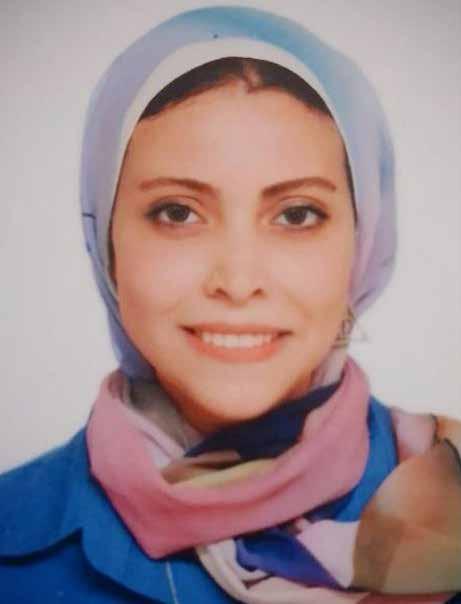
© liveencounters.net ARAB WOMEN POETS & WRITERS April 2024 Celebrating 14th Anniversary
M A R G I N
Hafsa Al-Rifai
Hafsa Al-Rifai is an Egyptian poet and urban planning engineer. She won the shield of the “Zarqa Al-Yamama” Poetry Festival in 2015. She published a literary collection entitled “Possibilities of a Mirage” in 2012 and the poetry collection “Before Habit Tamed My Vocal Cords” in 2023. In addition, she participated in several collective books, such as “Writers of Youth” and “HalfClosed Windows”. Moreover, she has published periodical articles and translations. She is also qualified for the short list of the “Ibn Khasib” Prize for Arabic Poetry in 2022.
Margin
“Perhaps I wanted to be more Than a space for pencil scribbles And naive words And ugly fractures
What distinguishes the blank page from me?
To test the elegance of ink And the correct numbers
And the trustworthiness of a point at the end of the line” A margin says painfully, Before it is erased again.
2024 April POETRY & WRITING © liveencounters.net H A F S A A L - R I F A I © Hafsa Al-Rifai
Chameleon
The womb of the world devours me
It does not want any more embryos
After today
It tells me in its own way: To grow bigger
And I tell it
- With the fetal curl around my confusionEvery night
Everything it needs to know
It slaps me on the cheek
And I cannot return the slap
And I do not turn the other cheek to it!
I’m not that capable
Not that serene anyway
We do not belong to each other
But I’m just pretending to blend in with its colors
Until I borrow a chameleon’s skin
And stop chewing the bad poems.
© liveencounters.net ARAB WOMEN POETS & WRITERS April 2024 Celebrating 14th Anniversary
M A R G I N
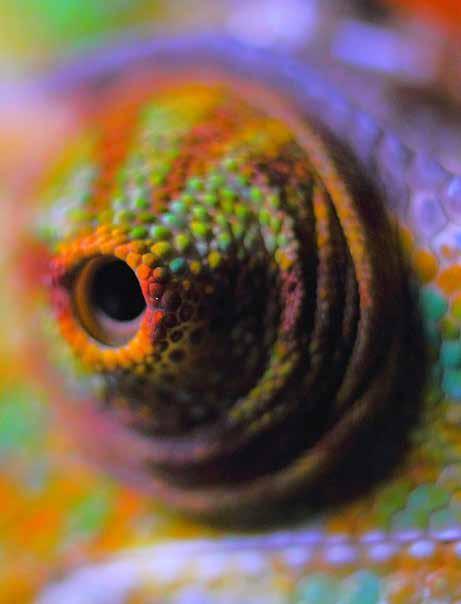
Photograph courtesy https://pixabay.com/photos/chameleon-abstract-chameleon-reptile-378557/
2024 April POETRY & WRITING © liveencounters.net H A F S A A L - R I F A I © Hafsa Al-Rifai

© liveencounters.net ARAB WOMEN POETS & WRITERS April 2024 Celebrating 14th Anniversary
Q A S I M
Hebatallah Ahmed
Hebatallah Ahmed is an Egyptian writer and doctoral mental health researcher. She has published two collections of short stories, Al-Nawala and The Vanilla Revolution. She won the 2024 Sawiris Literary Award for Short Stories, Senior Writers Branch, for The Vanilla Revolution. In addition, She won the Egyptian Story Club Award 2023 and the Central Prize of the Palaces of Culture for her collection, Al-Nawala.
Qasim
Oh December, good morning to the birds that inhabit my bold jasmine, to the warm cups that fill the kitchen, to the stormy weather outside the window that tempts me to make a cinnamon-and-sugar stuffed cake. I, incredibly, love the smell of cinnamon mixed with vanilla. The smell of vanilla stimulates my appetite, and cinnamon gives me energy of unlimited gentleness. Its sting, combined with the intensity of its scent, resembles an overflowing femininity that incites one’s resolve to challenge, just as the dense rose tree beneath the window does; as it flaunts its roses in the face of rain, radiating brilliance after rain that continued throughout the night.
The December air this morning dances breathlessly with the dresses of passers-by, and its shy sun shrinks the shadow of a woman buying groceries, bread, and oranges for her children. With the second drizzle of rain this morning, I begin to knead the cakes well and massage the dough with a large piece of butter, and with every massage the scent of nostalgia wafts from my hands and the kitchen. The “Qasim” gale, which has struck Alexandria since yesterday afternoon, has been severe this year.
I once asked my grandmother why you called that violent gale “Qasim, and she said: One day the fishermen went out in a large group, and the sheikh of the fishermen was suffering from a cold that had become difficult for lemons, so his eldest son Qasim went away to lead the fishing procession, and there the sea swallowed him, and his father went mad and went out in anger to the sea and struck it with his stick, and the sky mobilized for retaliation, , to avenge the adornment of the youth. The sky continued to rain heavily of sadness and love for five full days. The wind rose, uprooting the doors behind which loved ones hid along the coast.
2024 April POETRY & WRITING © liveencounters.net H E B A T A L L A H A H M E D
© Hebatallah Ahmed
continued overleaf...
So, the people called it Qasim gale. The cat jumped in fright into the kitchen, and I lost my balance as I thought about Qasim, whom nature had revolted against being swallowed by the sea. Was he so handsome that the land would spare him as wide as the sea? Were his eyes like the eyes of Omar Sharif, and the sound of his laugh like Rushdi Abaza’s laugh...or was he filled with confidence like Amal Dunqul’s poems?
Or does he plant ears of corn, goodness, and love in the earth? Or was the sea the most courageous of Qasim’s lovers, so it embraced him inside its heart, throwing everyone away? Hmmm... the cake fills the kitchen with a pleasant smell. The light that penetrates through my fingers as I bake it makes me able to collect the day’s remains in an empty glass jar on the spice rack; bringing back to my soul some of the sweetness cut from it. It seems to me that I have loved the smell of bread since forever.
The story of my passion for cinnamon sticks coincides with the story of Qasim and the sea. Why didn’t I think about the necessity of opening a bakery? And set up a wide sofa in the middle of it, on which the grandmothers of the neighborhood sit, and the children gather around them, listening to the tales of the gals and the stories of the beautiful girls who stumble over the cups while baking cakes with the names of those they love.
And of course, I will create a cake named Qasim with lots of cinnamon, ginger, and honey.
© liveencounters.net ARAB WOMEN POETS & WRITERS April 2024 Celebrating 14th Anniversary
Q A S I M
Fixed time
At half past four o’clock, the station is full of groups of people, ranging from those arriving to travelling, laughing, and frowning, and various colors of dresses, coats and scarves, and the squawking of conductors and vendors. Her arrival silences the noise, with her slender stature and her flexible body despite the passing of the years. She kept the same white dress and high heels, and her carefully styled hair, which has grown taller over the past year, and the mixed fragrance of jasmine and fruits, and her strong attractive steps... I heard a faint groan emanating from Muhammad Atwan, followed by a long sigh. He pulled a chair in front of Madani’s booth,
“You are welcome, I swear it is a long time ago! You are welcome, Madam. Jilan.” “Mercy...how are you and how are the trains?” Muhammad Atwan, smiling: “Okay, fine, Madam, excuse me.”
Atwan left, bowing his head to the right, and left, squinting, and saying: “Indeed... longings are the goods of strangers.” On February 5th every year, Jilan comes looking the same for fifteen years. Nothing had changed except the dimming of the sparkle from her eyes, the smile shrinking into a curved arc that matched the color of the red lipstick, and a trembling appeared that comforted her fingers as they fumbled together. “
Fifteen years, Kamel, and I have never lost hope that you will come on the five o’clock train as you promised me. I know, my dear, that you will not break the promise even if you are late... you will come. I break the neck of time with my daily attempt to outrun the sun, ignoring the silence of the years hanging on the holder next to the door. I make sure I am well dressed in the windowpane and the dirty elevator wall, which clearly reflects my image. You know that I do not like mirrors... The walls of the house are filled with pictures of those who have passed away, my father, whose fate did not give a chance to meet you, and my repulsive wretch brother, and Khalaf the one whose back has been bent by time?
continued overleaf...
2024 April POETRY & WRITING © liveencounters.net
H E B A T A L L A H A H M E D © Hebatallah Ahmed
Do you remember Khalaf, the young man who was carrying your letters to me?! The young man grew up and now has three children, the youngest of whom is a girl named Jilan - after my name - I became the manager of the bank where I work, and they started calling me Mrs. Jilan instead of Miss Jilan. They are fools who do not know how much I love calling me Miss, to remind me that I am devoted to you ...
“You may not know, Kamel, that the fifth train no longer existed at the end of January 2011. I was also surprised, my beloved, that the time of our sacred train was changed. Although the young revolutionaries demanded change, I did not hear that one of their demands was to change our time. I heard them calling for freedom, justice, equality, living in dignity, and refusing inheritance of power. They demanded things and things that did not include changing the time of the trains. I came here on our time in 2011.
I was surprised that day that the trains from the governorates to Alexandria and Cairo stopped, and the station was completely crowded. However, I was crowded to get under the street lamppost, where our meeting place was, you might manage your way and come to me.
When the wait was long, I chanted with them: “The people want the trains to return.” “Haha don’t laugh at me. Yes, I participated in the cheering, just as I shared a loaf of bread last year with a young man who came from his village to look for work here in Alexandria. He was waiting for a relative of his: He told me, ‘Eat this expensive loaf of bread kneaded with my mother’s tears.’” I didn’t tell him that I found it saltier and softer than all the loaves I had tasted before.
“The year before, I found you on the opposite sidewalk... I don’t really know how I forgot the place of our meeting - I grimaced a little - You told me, Kamel, that our place is under the street lamppost of our love. It is the one with a scratch on it bearing a heart with my name and yours. I called you Kamel, Kamel, I am here.” I ran over you until the heel of my shoe got stuck in the pavement tiles that have been repaired for two years. I left it and ran barefoot, and you did not hear.
© liveencounters.net ARAB WOMEN POETS & WRITERS April 2024 Celebrating 14th Anniversary
Q A S I M
I pushed the passengers before you disappeared into their dust, and I ran... Five o’clock strikes, and I ran... The station’s internal call rose, and the horn of the departing trains rose, drowning out my voice, and I ran... “Where did you go, Kamel? And how did you not hear my voice even though you heard my silence?”
Pardon me, Kamel! I know that you would not have ignored my call. Tell you a secret?! Your beloved’s vision has become weak... I have been using eyeglasses for ten years, but I do not wear them when I come to our expected date so that they do not obscure my eyes and I can see you clearly among all arrivals.
Kamel... Oh Kamel... I’m here.” Jilan’s voice rose as she stood up and ran towards sidewalk 6, and Muhammad Atwan and Madani ran after her to prevent her from falling onto the tracks.
2024 April POETRY & WRITING © liveencounters.net
H E B A T A L L A H A H M E D © Hebatallah Ahmed

© liveencounters.net ARAB WOMEN POETS & WRITERS April 2024 Celebrating 14th Anniversary
A N C I E N T C I T I E S
Khulood Al-Mualla
Khulood Al-Mualla is an Emirati poet and writer. She has published six collections of poetry, and her works have been translated into several languages, including Spanish, Turkish, Russian, French, Hindi, Italian, and English. She won the Buland Al-Haidari Prize for Young Poets for the year 2008 at the Asilah Festival in Morocco. Furthermore, she participated as a member of the jury for the 2011 Buland Al-Haidari Prize. In 2016, she was honored along with three world poets in the Initiative of His Highness Sheikh Mohammed bin Rashid Al Maktoum for Peace Poets. She has also been chosen as a consultant at the International Poetry Festival in Costa Rica in 2020.
Ancient cities
I enter the world from its ancient cities
And I do not turn around
In ancient cities, poems sit on the roads
And between stories
They jump over the ribs
And open their arms to the lost
In ancient cities strife flies
And nerdy songs flow out
The coasts hide in them
The clouds descend subtly
And poetry reproduces
In ancient cities as well
Passion flies
Houses dance
Doors and windows open
The heart of the world expands for people like me
2024 April POETRY & WRITING © liveencounters.net K H U L O O D A L - M U A L L A © Khulood Al-Mualla
Snowball
The snowball I form with my love makes me feel warm
The snowball that I throw into my heart teaches me to melt
The snowball that bears my name is rebelling
What a feisty whiteness.
© liveencounters.net ARAB WOMEN POETS & WRITERS April 2024 Celebrating 14th Anniversary
A N C I E N T C I T I E S
Absolutely free
I practice my passion for displaying the sky thus
Absolutely free
I look out my narrow window
So, I see the whole universe
His biggest secrets are revealed thus
Absolutely free
I color my small details with the color of snow
I reconcile myself with the moment that brings me pleasure in things
From my narrow window I look out
I enjoy stretching
And my sky is wet with life
I practice my passion of reaping the fruits of my existence
Naked from my old injuries
Naked from the excessive silence around me
Absolutely free
So that I am not complete.
2024 April POETRY & WRITING © liveencounters.net
K H U L O O D A L - M U A L L A © Khulood Al-Mualla
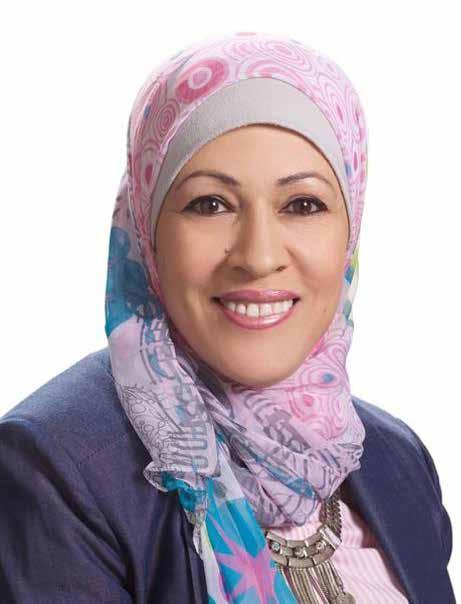
© liveencounters.net ARAB WOMEN POETS & WRITERS April 2024 Celebrating 14th Anniversary
W H A T L O V E D O E S
Maha Alautoom
Maha Alautoom is a Poet and academic. She holds a PhD in Arabic Literature and Modern Criticism. She is also a member of the Jordanian Writers Association. Among her poetic works are Circles of Mud 1999, Half of It is Lilac 2006, More like Her Dreams 2010, Down the River 2013, and Upper Rooms 2019. Moreover, she received the Jordanian State Appreciation Award in 2017.
What love does
Do you know what love does with perfume?
It makes it recover the garden.
And do you know what love does to roses?
They drip their colors into butterflies
There is no difference between a butterfly and a rose in love
There is no difference between
The metaphor of the butterflies and the roses of truth.
And do you know what love does to poetry?
It catches a sea with its fish
For a fairy in the caves of speech
Who sees in the dark
And raves:
If the waves are honest
We survive
And if the sea drowns
You are the drowned.
2024 April POETRY & WRITING © liveencounters.net M A H A A L A U T O O M
© Maha Alautoom
Women
Women who drag out their darkness To raise a dawn that illuminates speech.
Women who were bereaved of their chicks To release a flock of doves.
Women of Palestine
And the women who return with their lovers’ light shrouds From Egypt to the borders of the Levant
On them - onlyPeace.
© liveencounters.net ARAB WOMEN POETS & WRITERS April 2024 Celebrating 14th Anniversary W H A T L O V E D O E S
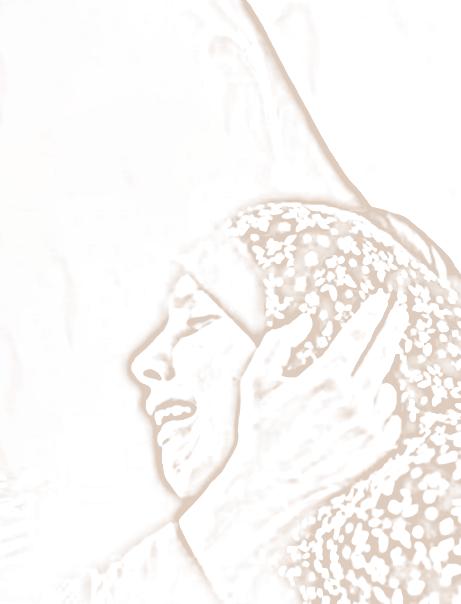
2024 April POETRY & WRITING © liveencounters.net M A H A A L A U T O O M © Maha Alautoom
Graphic of a Palestinian woman in mourning.
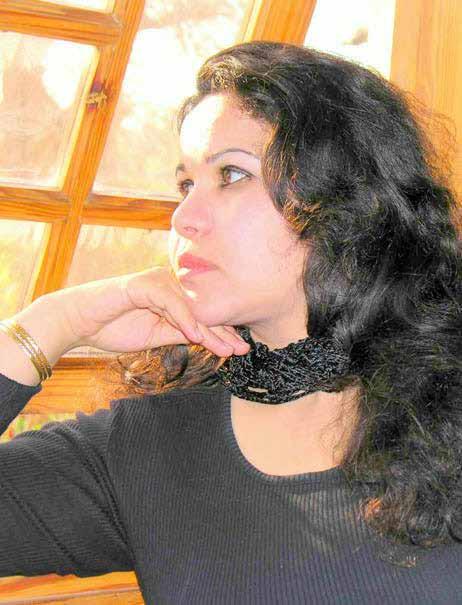
© liveencounters.net ARAB WOMEN POETS & WRITERS April 2024 Celebrating 14th Anniversary
M U S I C T H A T C R E E P S I N L I K E L I G H T
Nagat Ali
Najat Ali is an Egyptian poet who obtained a Ph.D. with first class honors from the Department of Arabic Language, Faculty of Arts, Cairo University in 2014. Her poems have been translated into several languages: English, French, German, Italian, Spanish, Swedish, Kurdish, Portuguese and Romanian. She has published four collections of poetry, In addition to two books in literary criticism. She won several awards, including the Best Poetry Award for the Egyptian Ministry of Culture, 1998 and Tangier Prize for Young Arab Poets, Morocco, 2009. She was selected among the best young Arab writers at the 39th Beirut Prize in 2010. In addition, she won Naguib Mahfouz Award for Literary Criticism, Literary News Award in 2017.
Music that creeps in like light
I will collect my losses from
Lost loved ones
I will write about swarms of despair
That come to me
From every direction and end
Then I will tell you about my loneliness
Which took a long time
Then I will point my hand to the cracked Wall
Which I engraved
Part of my broken face
And stories of the painful past
I will just be happy now
Because I am listening to this Music
Which shone like the sun
In my soul
And it seemed like an audible light
That permeates my body
So, life was revived in it again
And spread peace
In the whole universe.
2024 April POETRY & WRITING © liveencounters.net N A G A T A L I © Nagat Ali
How could you disappear Helen!
How could you suddenly disappear
Helen
Without telling me
Was I not your good opponent Who wrote a poem about you one day?!
Your voice is heard here
With me between the walls
How did I receive the news of your passing
Alone
With all this neutrality
It is not appropriate for you
As an opponent that has tormented me for a long time
I am trying to imagine
How they covered your skinny body
And how did the angels bear
The look of your sad eyes
When they lift you up
Rushing to the sky.
© liveencounters.net ARAB WOMEN POETS & WRITERS April 2024 Celebrating 14th Anniversary M U S I C T H A T C R E E P S I N L I K E L I G H T

Photograph courtesy https://www.metmuseum.org/art/collection/search/252890
2024 April POETRY & WRITING © liveencounters.net N A G A T A L I © Nagat Ali
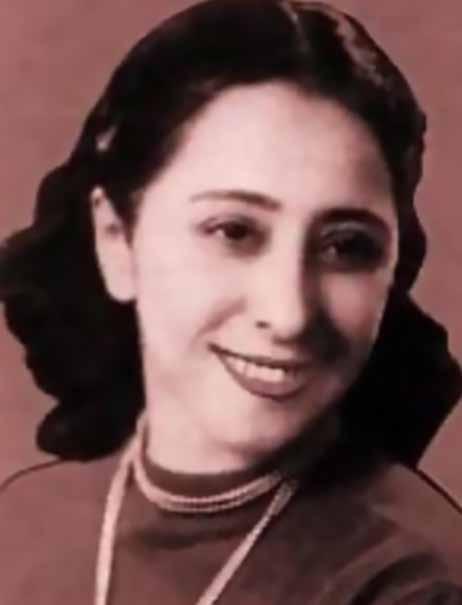
© liveencounters.net ARAB WOMEN POETS & WRITERS April 2024 Celebrating 14th Anniversary
W H O A M I ?
Nazik al-Malaika
Nazik al-Malaika (1923-2007) is an Iraqi poet, critic and academic who taught in many schools and universities in Iraq. She published several poetry collections and was best known for her role as a pioneer of the free verse movement, making a sharp departure from the classical rhyme form that had dominated Arabic poetry for centuries.
Who am I?
The night asks who am I?
I am his secret, deep, black anxiety
I am its rebellious silence
I content myself with silence
And I wrapped my heart with suspicions
And I remained solemn here
Gazing, while the ages ask me
Who am I?
And the wind asks who am I?
I am its confused soul, denied by time
I am in nowhere like it
We keep walking and there is no end
We keep passing and there is no survival
If we reach the curve
We thought it was the end of misery
Then there was void!
And eternity asks who am I
I, like it, am a giant embracing ages
And I return and grant them resurrection
I create the distant past
From the temptation of the pleasant hope
And I will return to bury it again
To create for myself a new yesterday
Whose tomorrow is ice
And the self asks who am I?
I am like it, confused, staring into the darkness
Nothing gives me peace
I keep asking and the answer
Will remain veiled by mirage
And I will keep thinking it has come close
But when I reach it, it has dissolved
Died and disappeared.
2024 April POETRY & WRITING © liveencounters.net N A Z I K A L - M A L A I K A © Nazik al-Malaika
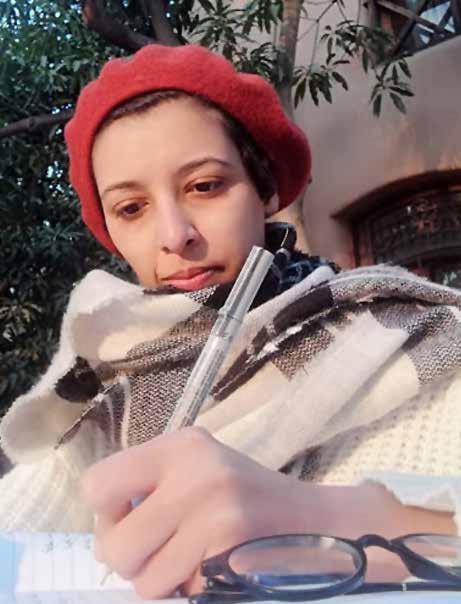
© liveencounters.net ARAB WOMEN POETS & WRITERS April 2024 Celebrating 14th Anniversary
T H E S E C R E T
Nehad Zaki
Nehad Zaki, an Egyptian poet, journalist, and writer, born in December 1987. She won the Buland Al-Haidari Prize for Young Arab Poets in its 2022 session. She practices drawing and is interested in Fine arts, film criticism, philosophy, literature, and other human sciences. In February 2022, her book “As if it were the Resurrection” was published.
The secret
In my city
No one is greeted
Eyes do not meet
And hands do not touch.
The trial suddenly shrank.
The spheres lost their control over the City of God
The threads broke up
The circles dissolved.
You are trapped in the present moment
You repeat it over and over again
A cat chasing its tail.
The other no longer has a role in the story
You now know that
He would not end the curse of your blood.
Bats nested in the souls next to spiders
They sucked the heart’s blood
Everyone was hit by the infection of walking in the place
Ghosts wandering on an eternal street.
Everyone closes their eyes
Escapes into the bliss of blindness
Afraid of catching feelings.
Here, the secrets die suffocated in the throats
Swords cut tongues before they speak a word.
And under the shadow of the moon
No one whispers secrets in anyone’s ear anymore.
2024 April POETRY & WRITING © liveencounters.net N E H A D Z A K I © Nehad Zaki
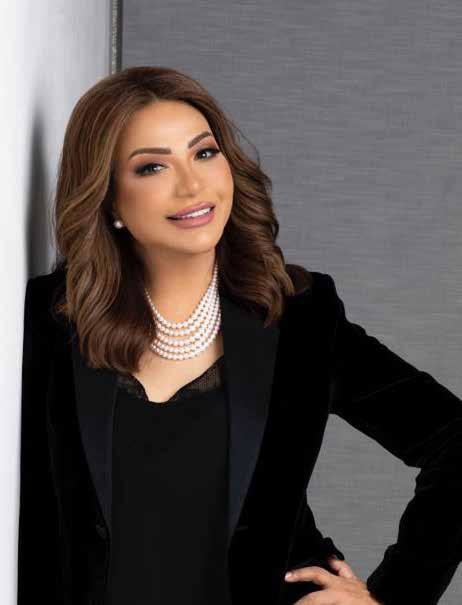
© liveencounters.net ARAB WOMEN POETS & WRITERS April 2024 Celebrating 14th Anniversary
T O M Y F A T H E R
Parween Habib
Parween Habib is a poet, academic researcher, and media expert. In 2011, she won the Dynamic Women Award at the continental level from George Washington University in the USA. Thus, obtaining the first international award granted to successful women around the world with inspiring experiences. She also won national and international awards in different fields, including media, poetry and other cultural activities. She is the author of four critical books, three poetry collections, and two children’s books. Her poetry has been translated into seven languages. In addition, she holds a master’s degree with distinction in Literary Criticism from Ain Shams University, Cairo. She also holds a Ph.D. with distinction in Literary Criticism, through a study of the language of women’s poetry in the Gulf from 1975 to 2004, from the Arab League University, Egypt. Through her talk show program on Dubai TV, she interviewed nearly 500 Arab novelists, poets, and thinkers.
To my father
What is the benefit of all the medals that you carry?
And you are disturbed by your daughter’s tired dreams
You fight for the freedom of the people
And my freedom is prisoned in your hands
I say - if I hear you
Take pride in military honor and honesty -
What a lie!
I condemn your submission to rulers by the command of God
You offer a daughter as a sacrifice for their obedience
How much you hurt her feelings; you became her executioner
O my father whom the city blessed
I thought you were a wall that repels gossiping wolves from me
And pierces the eye of voyeurism
When it chases my sad soul
But your silence burned away the similarities between us
You demand that I do not say, so that you can tell
But if you bust my window
Then you closed the door to my letters
I will burn all my longing for you
I turn my back on the custom of the tribe
And I go on... and cry
2024 April POETRY & WRITING © liveencounters.net P A R W E E N H A B I B © Parween Habib
To my son
It is true that I am a rogue woman
Who left her child to the mirage
To suckle from the breast of this great void
The night sings to him as a lullaby to sleep
Then he falls asleep, and sorrow awakens in my dream
And I hear my heart - I am the woman in love -
He calls you “Kami”
I extend my hands to the dream
To touch your hair, your cheek, your face
A terrifying scream rises
He calls for the thief’s hand to be cut off!
It is true that I ran away
Was I able to hold the child in my hands
And I leave my freedom with them
I did not ignore you, but these are the desires of the tribe
The only thing that extinguished the embers of brutality within them
Was to see me killed
I do not blame you if you say one day
That I loosened the braid in my beloved’s arms
And I betrayed... and I and I…
I do not blame you
But despite what has been said or will be said
Remember that I am your mother!
© liveencounters.net ARAB WOMEN POETS & WRITERS April 2024 Celebrating 14th Anniversary
T O M Y F A T H E R
To my husband
It is not your fault if they handed me over to you as a young girl
Or have women surrounded me with their jealousy
And revealed my secret before the family
And I did not care, I knew that their mornings
Are servitude and submission
And in the evening, the night’s hem embroiders jealousy
I have not passed, except through lean years, the madness of childhood
And I did not know
That I will be given as a gift on a plate blessed by the tribe
To a man twice my age
It is not your fault
Because I never said I love you
And I did not sleep awake waiting for you
And the longing was not intoxicated when my perfume spoke to it
And how can my snow melt, and I do not know the heat of your fire
It is not my fault if the soul is a bird
That rejects life in your dwelling pond
It spreads its wings to the wind
I do not care if one day you say something that is not permissible
And you told them that I am unfaithful.
2024 April POETRY & WRITING © liveencounters.net
P A R W E E N H A B I B © Parween Habib
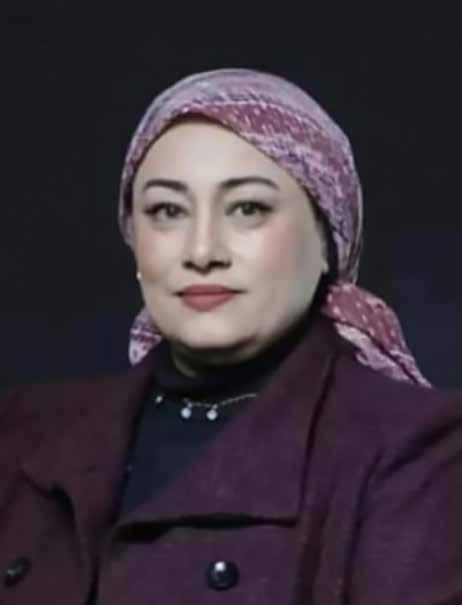
© liveencounters.net ARAB WOMEN POETS & WRITERS April 2024 Celebrating 14th Anniversary
A S H A D O W R E S E M B L I N G A G A L L O W S
Rasha Ahmed
Rasha Ahmed is an Egyptian poet and cultural editor. She has published several collections of poetry, including “The Boredom of Losses,” “It Was Nothing but the Water of My Heart,” “With a Pale Light,” and “An Empty Seat Weary by the Light.”
A shadow resembling a gallows
I do not have any indulgences
And no stray star in my heart
A completely naked woman
Who covered her loneliness with a shadow that looked like a gallows
Every day she wraps it around her neck
She is waiting for a lonely butterfly
That returns back from the forest
With a wound
That shortens the route to the sea.
2024 April POETRY & WRITING © liveencounters.net R A S H A A H M E D
© Rasha Ahmed
Love
Love, this transparent being
How do we buy or sell it
How to rent ourselves to it for a day
For a week, a month, a year
The trees of silence withered
The soil is dry
No moon in the jug
Love is our fresh, sweet disease
That does not go to the doctor
We will always wither and grow in it
Like a flower
Like a laugh
Like a tremor that burns the language
In the bones of the bed.
I love you
I regain yesterday, today and tomorrow
I regain myself
And wait for another life
That we can color
We can ignite through the eye of a needle
We laugh
When we fight over a kiss
That we do not know how to, justly, distribute
On two lips
No commandments for grass
Just We rest time on its crooked side
We smile
When we take its hand
Until it crosses the sidewalk.
© liveencounters.net ARAB WOMEN POETS & WRITERS April 2024 Celebrating 14th Anniversary
A S H A D O W R E S E M B L I N G A G A L L O W S
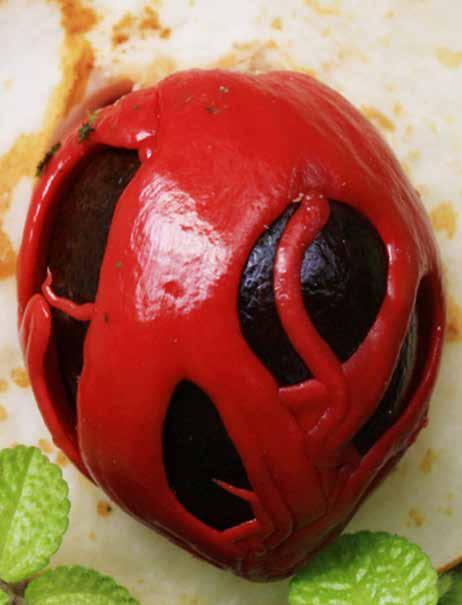
2024 April POETRY & WRITING © liveencounters.net R A S H A A H M E D
© Rasha Ahmed
Photograph of nutmeg by Mark Ulyseas.
©Mark Ulyseas

© liveencounters.net ARAB WOMEN POETS & WRITERS April 2024 Celebrating 14th Anniversary
P O S S I B I L I T I E S
Rim Gomri
Rim Gomri is a Tunisian poet, storyteller, writer, and journalist. She studied journalism and the media. She has published three collections of poetry: Women Waiting, in 2013, On My Body, I Tattooed My Amulet, in 2016, What the Dream Did Not Say, in 2018, and Another Life for a Past Age, in 2021. Furthermore, she has a series of short stories and a novel in progress, as well as a fourth poetry collection in print, to be published soon. She writes literary and cultural articles in Tunisian and Arab periodicals.
Possibilities
The possibilities are many
It’s like witnessing the sunrise from an ancient roof
You get the ecstasy of creation
Or survive a traffic accident
While you are writing a love letter to a distant lover.
Perhaps you get a passing love stroke
You enter unwillingly the cities of poetry
You become the pivotal line
In a forgotten poetry collection on a shelf.
You may drink wine behind a window
In a city under bombardment
And you smile
Death has not noticed your presence yet.
There are many possibilities in life
As if light seeps into your soul at dawn
The sun shines on your lips
You extend your tongue to this existence
Happy with your victory over the darkness of your heart.
It may happen while you kiss her
To live the dream
Mock your naivety
Go on chasing longing.
2024 April POETRY & WRITING © liveencounters.net R I M G O M R I © Rim Gomri
Life has sad possibilities
A white cloudy morning
Becomes saturated blue
With the salt of distant seas
So, your soul longs for rain.
Poetic possibilities
You write a hot love poem
As brown as your coffee cup
You forget to borrow your lover’s face
And the meaning does not complete.
In life, the possibility of death
Destroys what came before it... It destroys what comes after it
The poet is miserable
The lover wails at its doorstep
The dream door closes when it passes
And nothing remains
Except the possibility of crossing the last dream.
© liveencounters.net ARAB WOMEN POETS & WRITERS April 2024 Celebrating 14th Anniversary
P O S S I B I L I T I E S
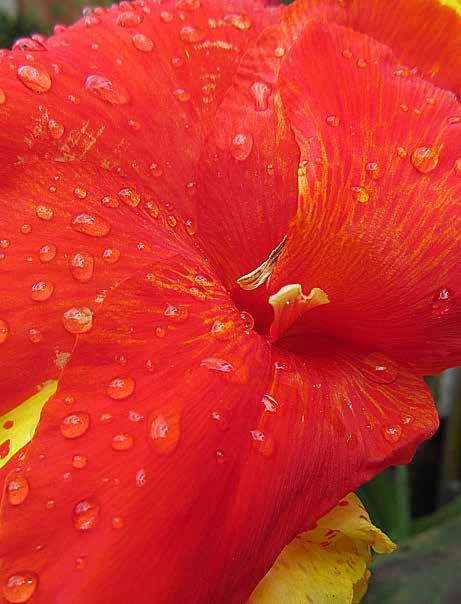
2024 April POETRY & WRITING © liveencounters.net R I M G O M R I © Rim Gomri
Photograph of nutmeg by Mark Ulyseas.
©Mark Ulyseas
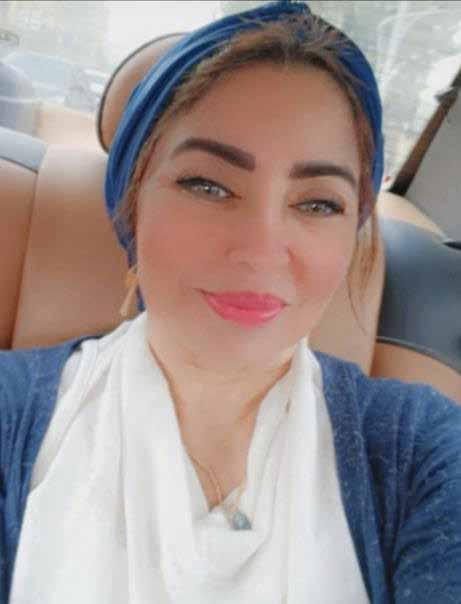
© liveencounters.net ARAB WOMEN POETS & WRITERS April 2024 Celebrating 14th Anniversary
T I M E M A C H I N E
Sahar Anwar
Sohar Anwar is an Egyptian poet and writer who holds a doctorate in business administration. She began writing poetry many years ago, and has had many articles, poems, and short stories published in many newspapers, forums, and websites since 2003. “Without a Trace of Me” is considered her first collection of poetry. In 2023, she published her book “Women in the Business World... Between Finance and Empowerment.”
Time machine
Images of the past collide
Strange worlds are being born
Lead me to my destiny.
The time machine takes me
From now on to other lives
Crashed by air waves
Who are you, alien? I asked?
Your companion: she said.
Now I am free
I fled from me
I am resurrected.
2024 April POETRY & WRITING © liveencounters.net S A H A R A N W A R © Sahar Anwar
No one looks like himself
This morning
I am not me
My body is unable to contain me.
A sun like a snake that writhes every night
Sleeps in the embrace of a new sky.
A moon that does not like fullness; Except after sleeping with star prostitutes.
How often does my sky change
I do not look like me.
© liveencounters.net ARAB WOMEN POETS & WRITERS April 2024 Celebrating 14th Anniversary
T I M E M A C H I N E
The coffee
Oh coffee
Try to remember me
I am the empty woman
The one who uprooted patience from her skin.
Oh coffee
Do you know how long hope died?
Since they left me a sleeping, dying dream
A blind cat meows in my head
And butterflies trapped behind a broken mirror
Waiting for the glow.
2024 April POETRY & WRITING © liveencounters.net
S A H A R A N W A R © Sahar Anwar
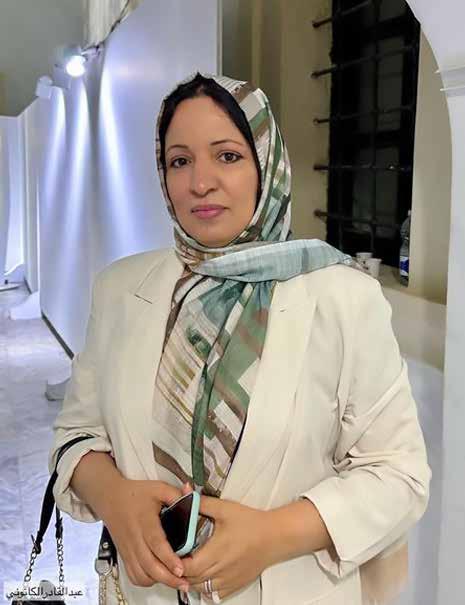
© liveencounters.net ARAB WOMEN POETS & WRITERS April 2024 Celebrating 14th Anniversary
H E A V I N E S S
Samira Al Bouzidi
Heaviness
My lightness is heavy
I feed my beings with transparent bread at the end of the night
The eggs hatch in my imagination all at once
That’s why the poems flow like mysterious lust.
Hungry and blind
I monitor the cosmic door
I put all my secrets in my bag
And I wait for you
This is what I have trained to do all my life
Here I broke the dry loaf
And drank of the immortal poison
Here I folded the larger world into my words
Here God gave me the sad flame!
I have a voice that can be broken
And forgotten
Suitable as a chair for stressful days.
2024 April POETRY & WRITING © liveencounters.net S A M I R A A L B O U Z I D I
© Samira Al Bouzidi
Samira Al Bouzidi is a Libyan poet. She has published eight poetry collections, and one of her collections has been translated into Italian.
Crazy woman
I open a window to the darkness, and knock on the door of the Night
My neighbor says: This is a crazy woman
And my friends put stones in my feet
And my children pull me by my long dress
But I read the book of commandments
I learned to walk on my own with a damaged foot.
A dog barks in the dark under my balcony
I silenced him with the book “The Approach to Al-Mu’tasim.”
I know Borges will be upset from behind his Grave
But that’s okay, I read it a hundred times
I will learn to silence my mouth by yawning
Because the light morning that floats in my head is bigger than every lie.
© liveencounters.net ARAB WOMEN POETS & WRITERS April 2024 Celebrating 14th Anniversary H E A V I N E S S
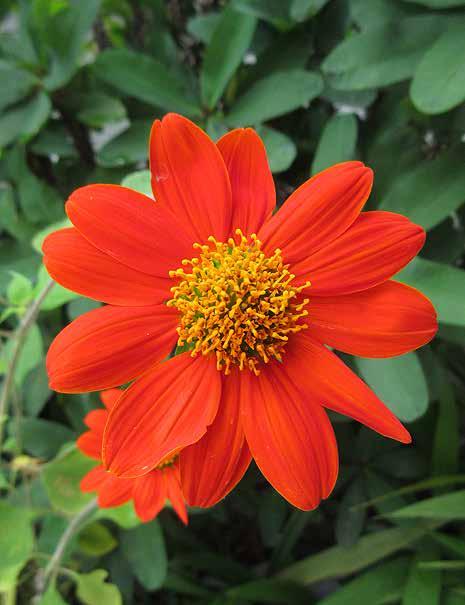
2024 April POETRY & WRITING © liveencounters.net S A M I R A A L B O U Z I D I
© Samira Al Bouzidi
Photograph by Mark Ulyseas.
©Mark Ulyseas
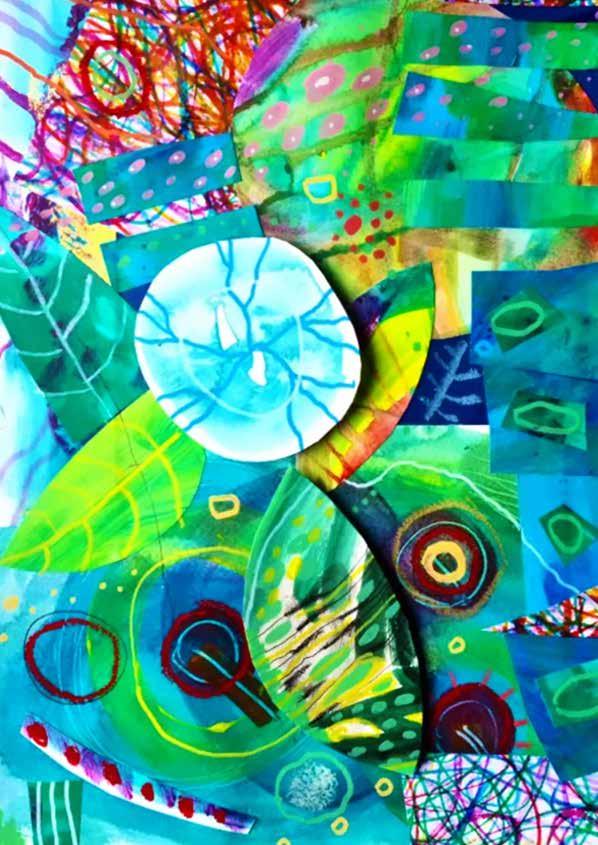
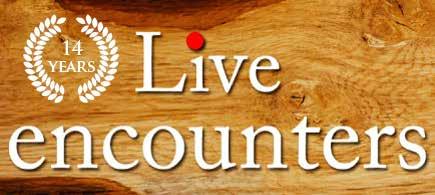
Free Online Magazine From Village Earth April 2024 P O E T R Y & W R I T I N G 2010 - 2024
Cover Artwork ‘Blue Lagoon’ by Irish Artist Emma Barone


